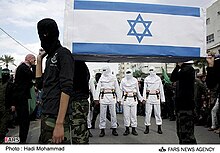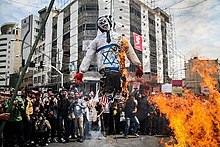Antisemitism has increased greatly in the Arab world since the beginning of the 20th century, for several reasons: the dissolution and breakdown of the Ottoman Empire and traditional Islamic society; European influence, brought about by Western imperialism and Arab Christians; Nazi propaganda and relations between Nazi Germany and the Arab world; resentment over Jewish nationalism; the rise of Arab nationalism; and the widespread proliferation of anti-Jewish and anti-Zionist conspiracy theories.
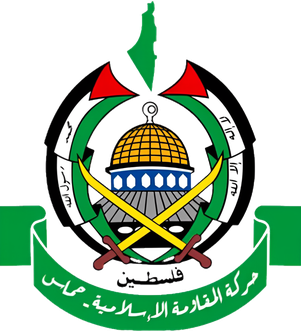
Hamas, an acronym of its official name, Harakat al-Muqawama al-Islamiya, is a Palestinian Sunni Islamist political and military movement governing parts of the Israeli-occupied Gaza Strip.

Zionism is a nationalist movement that emerged in Europe in the 19th century to enable the establishment of a homeland for the Jewish people in Palestine, a region roughly corresponding to the Land of Israel in Jewish tradition. Following the establishment of the modern state of Israel, Zionism became an ideology that supports the development and protection of the State of Israel as a Jewish state.
Scholars have studied and debated Muslim attitudes towards Jews, as well as the treatment of Jews in Islamic thought and societies throughout the history of Islam. Parts of the Islamic literary sources give mention to certain Jewish groups present in the past or present, which has led to debates. Some of this overlaps with Islamic remarks on non-Muslim religious groups in general.
Mahmoud Ahmadinejad was President of Iran from 3 August 2005 to 3 August 2013, and during that time had repeatedly made contentious speeches and statements against Israel. Ahmadinejad refused to call Israel by name, instead calling it the “Zionist regime”. He has called for the "elimination of the Zionist regime". Ahmadinejad took part in a protest called "The World Without Zionism" and has derided Israel on numerous occasions. He has urged regional powers to cut diplomatic and economic ties with Israel and halt oil sales. Tensions have risen over Iran's nuclear program. He has also provided funding, training and arms to Hezbollah and Hamas.
In political science, policide describes the intentional destruction of an independent political or social entity. Sometimes, the related word "politicide" is used in this meaning. The term is used with some regularity within political science, generally to refer to a policy of destruction that falls short of genocide or ethnocide.
The ideology of Hezbollah has been summarized as Shiite radicalism. Hezbollah was largely formed with the aid of pro-Iran Khomeinists during the early 1980s in order to spread the ideology of the Iranian revolution and follows a distinct version of Twelver Shia political theory of "Velayat-e-faqih" developed by the Iranian cleric Khomeini.
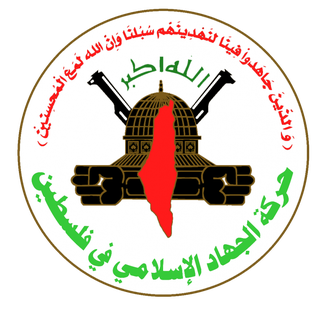
The Islamic Jihad Movement in Palestine, commonly known simply as Palestinian Islamic Jihad (PIJ), is a Palestinian Islamist paramilitary organization formed in 1981.
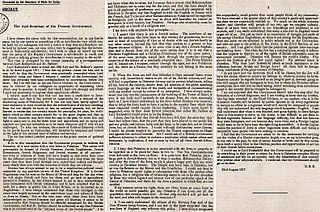
Anti-Zionism is opposition to Zionism. Although anti-Zionism is a heterogeneous phenomenon, all its proponents agree that the creation of the modern State of Israel, and the movement to create a sovereign Jewish state in the region of Palestine—a region partly coinciding with the biblical Land of Israel—was flawed or unjust in some way.

While anti-Zionism usually utilizes ethnic and political arguments against the existence or policies of the state of Israel, anti-Zionism has also been expressed within religious contexts which have, at times, colluded and collided with the ethnopolitical arguments over Israel's legitimacy. Outside of the liberal and socialist fields of anti-Zionist currents, the religious arguments tend to predominate as the driving ideological power within the incumbent movements and organizations, and usually target the Israeli state's relationship with Judaism.

The Covenant of the Islamic Resistance Movement, referred to as the Hamas Covenant or Hamas Charter, was issued by Hamas on 18 August 1988 and outlines the organization's founding identity, positions, and aims. In 2017, Hamas unveiled a revised charter, without explicitly revoking the 1988 charter.
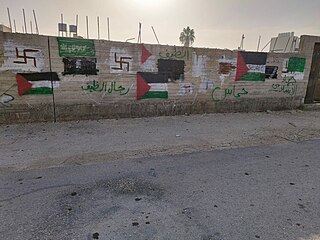
Racism in the Palestinian territories encompasses all forms and manifestations of racism experienced in the Palestinian Territories, of the West Bank, Gaza, and East Jerusalem, irrespective of the religion, colour, creed, or ethnic origin of the perpetrator and victim, or their citizenship, residency, or visitor status. It may refer to Jewish settler attitudes regarding Palestinians as well as Palestinian attitudes to Jews and the settlement enterprise undertaken in their name.

Since the Israeli Declaration of Independence in 1948, a number of countries and individuals have challenged the country's political legitimacy. Under international law, Israel has always met the standards for recognition as a sovereign state. However, over the course of the Arab–Israeli conflict, the country's authority has been questioned on a number of fronts. Critics of Israel may be motivated by their opposition to the country's right to exist or, since the 1967 Arab–Israeli War, their disapproval of the established power structure within the Israeli-occupied territories. Some have called for Israel's destruction.
Palestinianism is a term occasionally used to denote either the national political movement or Identity of the Palestinian people.. It gained currency by its use in the works of Edward Said and to describe a certain vein of theology opposed to Christian Zionism and that challenges Zionism and the right of Israel to exist.

Quds Day, officially known as International Quds Day, is an annual pro-Palestinian event held on the last Friday of the Islamic holy month of Ramadan to express support for Palestinians and oppose Israel and Zionism. It takes its name from the Arabic name for Jerusalem: al-Quds.
Aside from its use of political violence in pursuit of its goals, the Palestinian political and military organization Hamas has been widely criticised for a variety of reasons, including its alleged use of hate speech by its representatives, alleged use of human shields and child combatants as part of its military operations, alleged restriction of political freedoms within the Gaza Strip, and alleged human rights abuses.

Comparisons between Israel and Nazi Germany occur frequently in some veins of anti-Zionism in relation to the Israeli–Palestinian conflict. The legitimacy of these comparisons and their potential antisemitic nature is a matter of debate. Historically, figures like historian Arnold J. Toynbee have drawn parallels between Zionism and Nazism, a stance he maintained despite criticism. Scholar David Feldman suggests these comparisons are often rhetorical tools without specific antisemitic intent. The Anti-Defamation League (ADL), a pro-Israel group, sees them as diminishing the Holocaust's significance.

"From the river to the sea" is a political phrase that refers geographically to the area between the Jordan River and the Mediterranean Sea, an area described as Palestine, which today includes Israel and the Israeli-occupied Palestinian territories, including the West Bank, East Jerusalem, and the Gaza Strip.
The following outline is provided as an overview of and topical guide to the Wikipedia articles available about the Israel–Hamas war. It is an evolving list.
In May 2017 Palestinian political and military organization Hamas unveiled A Document of General Principles and Policies, often referred to as the new or revisedHamas charter. It advocated for a Palestinian state in the 1967 borders, describing this as a "formula of national consensus", but at the same time strove for the "complete liberation of Palestine, from the river to the sea", and did not explicitly recognize Israel. The new charter holds that armed resistance against an occupying power is justified under international law.

![The Iranian man on the right's headband reads "death to Israel" and Hamid Reza Ahmedabadi's [fa] on the left reads "death to America." Hamidreza Ahmadabadi 07072017.jpg](http://upload.wikimedia.org/wikipedia/commons/thumb/2/2a/Hamidreza_Ahmadabadi_07072017.jpg/220px-Hamidreza_Ahmadabadi_07072017.jpg)
